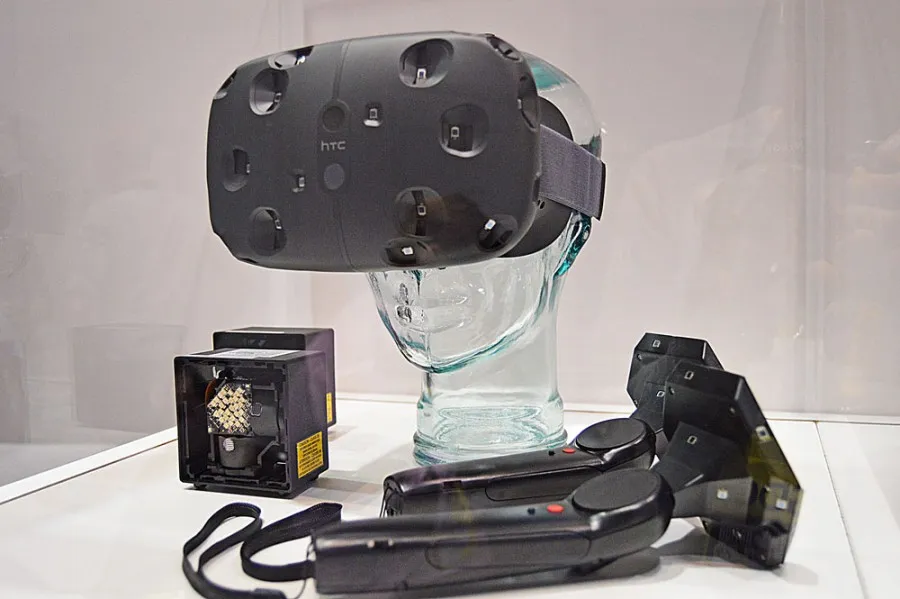HTC’s terrible quarter selling Android smartphones is leading to a 15 percent reduction in its workforce, or more than 2,000 employees, as the company bets heavily on virtual reality.
The company making the Vive headset is hoping to find growth in VR to offset the dramatic decline of its Android smartphone business, which saw half of its revenue disappear when compared to the same quarter last year. So HTC is laying off staff to reduce its operating costs by 35 percent and refocusing the company into new business units as it works with more than 1,000 developers on VR software.
“As we diversify beyond smartphones, we need a flexible and dynamic organization to ensure we can take advantage of all of the exciting opportunities,” said Cher Wang, chairwoman and CEO of HTC, in a prepared statement. “This strategic realignment of our business will ensure that each product group has the right focus, the right resources and the right expertise to win new markets.”
HTC recently invested $10 million to buy a 15 percent stake in Venice, California-based VR software startup WEVR. HTC’s Vive has only been a developer kit for a few months yet the “Blink” movement system created by developer Cloudhead shows a robust walk-around VR system. Overall, the Vive is rapidly progressing into consumer-ready status. However, the price of the Vive headset is still an unknown and HTC is in dire need of profits. In contrast, Facebook is shipping the Rift without the Oculus Touch controllers and could try to undercut Vive on price.
While HTC is focusing on VR, a 15 percent reduction in employees is a huge disruption and working at an organization where more than 1 in 10 people will be shown the door can be an enormous distraction. And what if the trend continues and next quarter people still aren’t buying HTC’s Android phones?
I’ll say it again: what HTC really needs is a Lighthouse-compliant phone holder akin to the Gear VR for complete room-scale position tracking. That would provide a real reason to pick up one of HTC’s Android phones. Even then, though, HTC doesn’t have John Carmack figuring out how to optimize software for mobile VR. Someone at HTC should lock up Alan Yates, Valve’s “chief pharalogist” (a pharalogist studies lighthouses) in a room and feed him his favorite meals until he comes out with a phone holder for an HTC phone.
If you care about seeing robust competition in the VR space and are pulling for Valve, cross your fingers that HTC can stay focused long enough to ship Vive on time and at a reasonable price compared to Facebook.
























